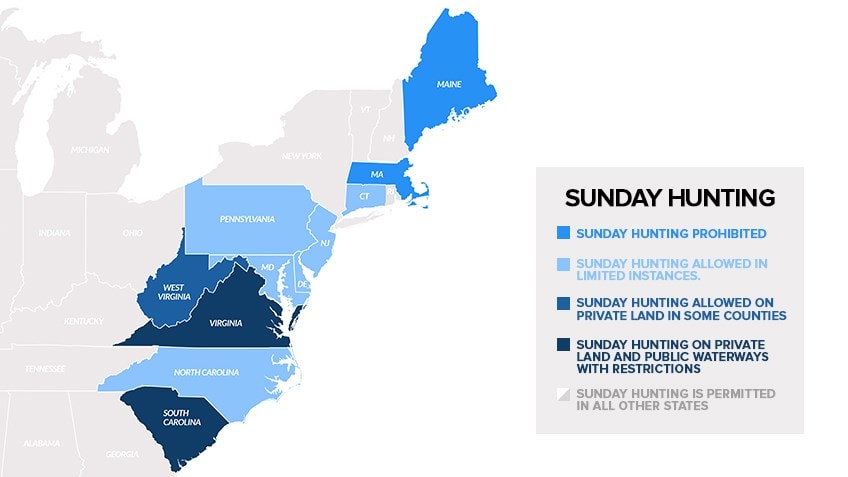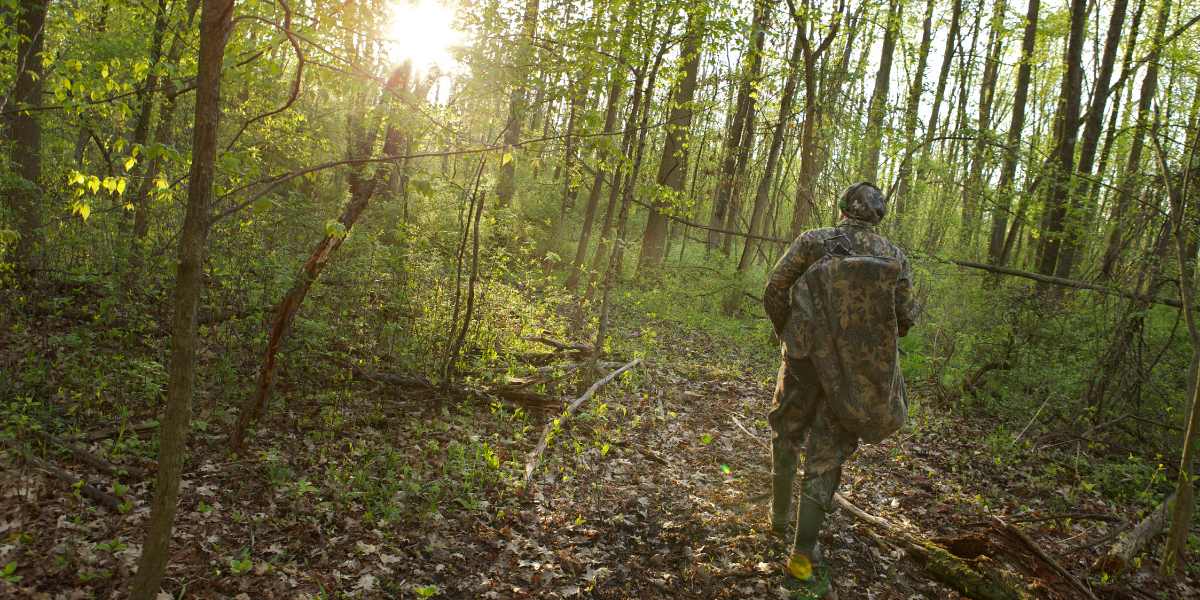Ever thought about the roots of the Sunday hunting bans, colloquially known as ‘Blue Laws’?
These regulations, which have been around since 1619 in North America, have traditionally restricted or even prohibited hunting activities on the Sabbath day.
Initially grounded in religious observance, the relevance of these laws in our modern, increasingly secular society has sparked a heated debate.
Some believe the laws maintain tradition and respect for the day of rest, while others argue they create unnecessary barriers for hunters, particularly those with limited time for their sport.
As we delve deeper into this fascinating topic, you’ll have to ponder: are the Sunday hunting bans a beloved tradition or an outdated obstacle?
Contents (Jump to Topic)
ToggleLet’s unpack the details.
In Short:
– Blue laws, which limit or prohibit certain activities on Sundays, were originally implemented for religious reasons, promoting church attendance and Sabbath observance.
– Numerous hunters and groups support the Sunday hunting ban due to tradition and resistance to change, but a growing movement is challenging this stance.
– Legislative efforts in several states, including Pennsylvania, Maine, South Carolina, and Virginia, aim to lift bans on Sunday hunting and provide more opportunities for hunters.
– Allowing Sunday hunting can have positive impacts on the hunting community, such as increasing available hunting days for a large portion of hunters, attracting new participants to the sport, and providing more opportunities for families to engage in outdoor activities.
The Roots of Blue Laws and Tradition
The roots of Sunday hunting bans can be traced back to blue laws, which were first enacted in Jamestown Colony in 1619.
These laws were implemented with a religious motive, to encourage church attendance and Sabbath observance by restricting or banning certain activities on Sundays, including hunting.
However, as society has progressed, so have the views on Sunday hunting.
Some argue that the blue laws are antiquated, while others staunchly uphold the tradition.
Interestingly, studies show that these laws have little impact on church attendance, suggesting that societal factors, not legislation, influence religious practices.
Ten states currently have a complete or partial ban on Sunday hunting:
- Connecticut,
- Delaware,
- Maine,
- Maryland,
- Massachusetts,
- New Jersey,
- North Carolina,
- Pennsylvania,
- South Carolina,
- and Virginia.
The debate rages on, but one thing is clear: attitudes toward Sunday hunting are evolving
Shifting Perspectives and Legislative Changes
As societal views evolve, the demand for Sunday hunting is sparking significant legislative changes in many states.
Changing attitudes towards hunting traditions are challenging the long-standing bans, with personal circumstances and responsibilities influencing these shifts.
The demands of work and family often conflict with available hunting days, leading to a heightened push for Sunday hunting.
This changing mindset is reflected in legislative progress across several states.
Grassroots movements, driven by hunters and advocates like State Senator Dan Laughlin, are pushing against the ban, making strides in Pennsylvania, Maine, South Carolina, and Virginia.
These legislative efforts aim not just to provide more hunting opportunities but also to acknowledge and adapt to the evolving societal norms.
Sunday Hunting: Effects on Wildlife and Church Attendance

When examining the potential impacts of Sunday hunting, it’s important to note that there’s no statistical evidence suggesting a negative effect on wildlife populations or church attendance.
The impact on wildlife conservation efforts seems minimal, as many states with Sunday hunting show no significant decrease in wildlife populations.
This indicates that responsible hunting practices, even when extended to Sundays, can coexist with conservation efforts.
As for the relationship between church attendance and hunting bans, there isn’t a clear correlation.
Some states with strict hunting bans don’t necessarily show high church attendance rates.
Furthermore, personal faith and the decision to attend church services are complex decisions influenced by far more than hunting schedules.
Overcoming the Challenges of Limited Land and Time
The challenges of limited hunting land and time constraints can significantly impact a hunter’s participation in the sport.
Limited land often leads to overcrowded areas, diminishing the quality of the hunting experience.
It’s not just about finding a space; it’s about finding a space where you can hone your skills without constant interruption.
Moreover, busy schedules and family commitments reduce your available hunting time.
Between work, family, and other responsibilities, finding time to hunt becomes a juggling act.
This is particularly true if you’re confined to hunting within traditional working hours.
The option to hunt on Sundays may provide a much-needed respite, offering an additional day to engage in this outdoor activity, particularly beneficial for those juggling multiple commitments.

Impact on the Hunting Community
While limited hunting land and time constraints pose significant challenges, it’s crucial to consider how these factors, coupled with the restrictions on Sunday hunting, broadly impact the hunting community.
The introduction of Sunday hunting could lead to increased participation.
With more opportunities, we’d likely see a rise in the number of hunters.
Furthermore, retention could improve as current hunters, with more time to engage in the activity, remain committed to the sport.
Many hunters oppose Sunday hunting because they feel that wild game needs a day of rest.
But there is no statistical evidence that Sunday hunting puts wild game populations at risk.
If it did, we would notice negative trends in the other 39 states that allow Sunday hunting, but no such trends exist.
The growth potential is significant too.
More hunting days would mean more opportunities for new hunters to join the ranks, ensuring the survival and expansion of the hunting community.
Benefits for Young Hunters
Lifting Sunday hunting bans can significantly benefit our youngest generation of hunters, offering them additional opportunities and time to immerse themselves in this outdoor tradition.
Engaging youth in hunting can have multiple benefits, providing practical skills, fostering a love for nature, and promoting sustainable wildlife management.
Moreover, Sunday hunting can serve as a unique platform for family bonding.
It’s an activity where parents can pass on their knowledge, values, and traditions.
In a world where digital distractions are rampant, these shared experiences in the wilderness can help strengthen family ties.
Thus, lifting bans may not only boost the hunting community’s numbers but could also foster a deeper connection with nature and family for our youth.
Source:
https://www.nraila.org/campaigns/huntingconservation/facts-at-a-glance-sunday-hunting/






